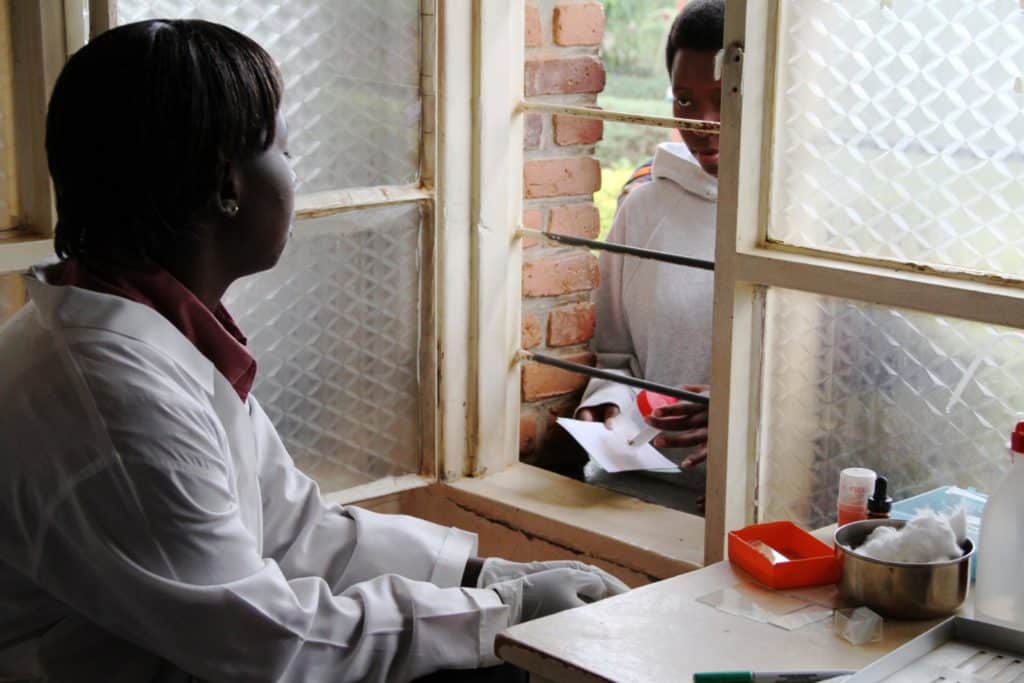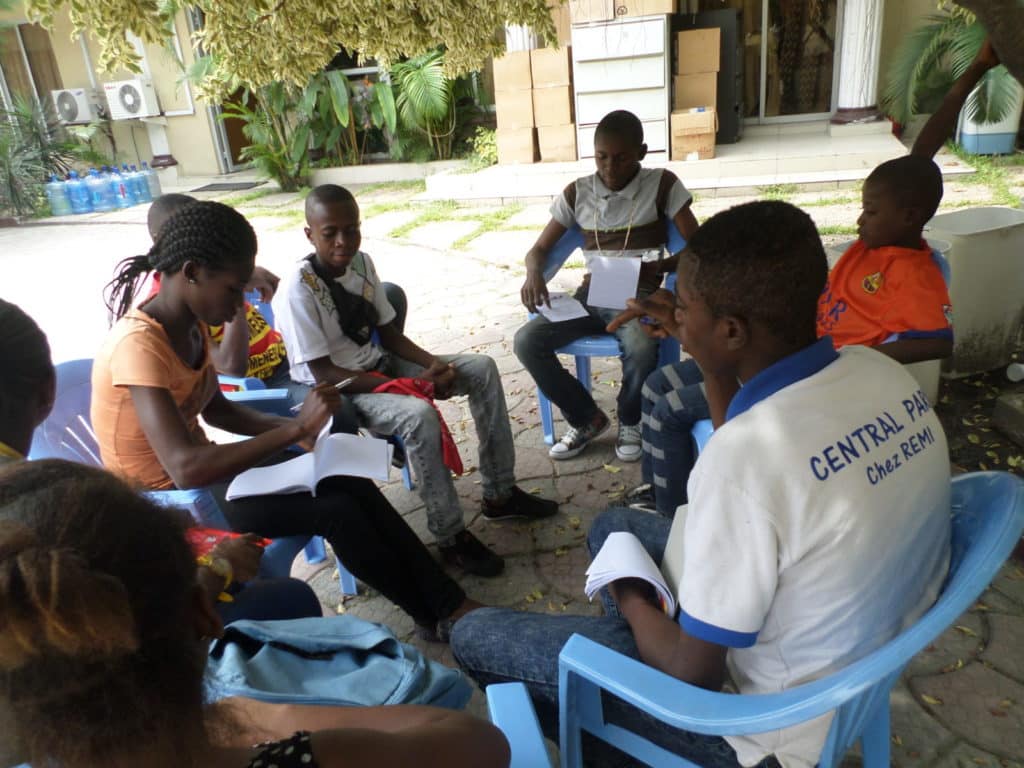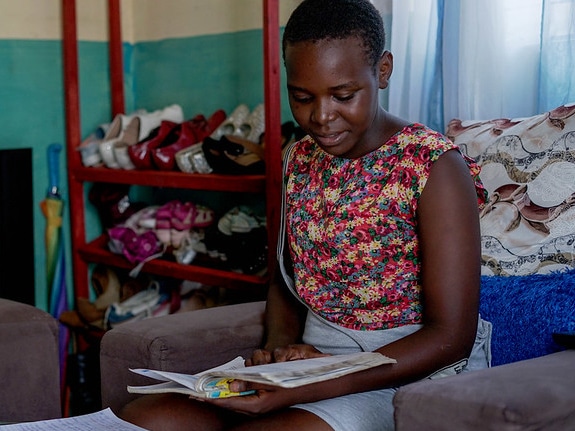Catalytic Projects
CQUIN supports catalytic projects to fill strategic gaps in knowledge about the implementation and scale-up of differentiated service delivery (DSD).
Ethiopia: Taking Multi-Month Scripting and Dispensing to Scale

Multi-month scripting and dispensing (MMSD) is a facility-based, individual-focused DSD model in which people doing well on antiretroviral therapy (ART) receive larger amounts of medication at each visit, enabling their appointments to be spaced at longer intervals. Ethiopia’s Federal Ministry of Health (FMOH) has scaled up 6-month MMSD to more than 1086 health facilities and estimates that 55 percent of eligible people on ART have enrolled.
In 2019, CQUIN partnered with FMOH on a qualitative study exploring health care worker and recipient of care perspectives on MMSD and appointment spacing.
Using a mixed-methods study design, the partnership explored the implementation of Ethiopia’s multi-month dispensing (MMD) model called the Appointment Spacing Model (ASM) via focus groups with ASM-eligible clients enrolled and not enrolled in ASM and in-depth interviews with healthcare workers (HCWs).
Results:
ASM with 6-MMD was perceived to have marked benefits for clients and health systems, including time and cost savings, fewer work disruptions, decongested facilities, reduced provider workloads, improved record-keeping, reduced stigma, better adherence, improved health, and improved quality of care. Non-ASM enrolled participants cited medication storage challenges, less frequent HCW monitoring, increased stress, and ASM misunderstandings as reasons for non-enrollment.
Conclusion:
The concerns of non-ASM enrolled participants suggest the need for enhanced client education about ASM, more discreet, efficiently packaged ART, and highlight that ASM is not ideal for all clients.
Learn more about this DSD Model in Ethiopia
Learn more about ICAP’s broader portfolio of work in Ethiopia

Zimbabwe: Enhancing Male Engagement in Community Antiretroviral Refill Groups
Suboptimal male engagement in HIV programs is a persistent challenge, leading to lower coverage of HIV testing, prevention, and treatment services, and to worse outcomes for men. Differentiated service delivery models, such as Zimbabwe’s peer-led community antiretroviral refill groups (CARGs), offer the opportunity to enhance the satisfaction, retention, and treatment outcomes for people on antiretroviral therapy (ART). CQUIN partnered with Zimbabwe’s Ministry of Health and Child Care (MoHCC) and the Zimbabwe National Network of People Living with HIV to conduct an exploratory qualitative study to identify facilitators and barriers to participation in CARGs by HIV-positive men.
CARG participants, policymakers, donors, Health Care Workers, and community members noted many advantages to CARG participation, including convenience, efficiency, solidarity, and mutual psychosocial support. Although those familiar with CARGs reported that these groups decreased HIV-related stigma, concerns about stigma and privacy were perceived to be the primary reason for men’s non-participation. Other important barriers to male enrollment included lack of awareness of CARGs, misunderstanding of how CARGs operate, few perceived benefits, and lack of flexibility in CARG implementation.
The study concluded that more effective educational and awareness campaigns, community-based anti-stigma campaigns, more flexible CARG designs, and provision of financial and/or in-kind support to CARG members could mitigate many of the barriers to male enrollment in CARGs. Men may also prefer alternative DSD models that are facility-based and/or do not require group participation.
The study team worked closely with the MOHCC and other local stakeholders to ensure a high degree of local engagement and generate potential for findings to contribute to the strengthening of Zimbabwe’s health system.
View the Paper
Learn about ICAP’s broader portfolio of work in Zimbabwe
Kenya: Exploring Service Delivery Needs for HIV-positive Adolescents
In Kenya, HIV is a leading cause of death for adolescents. Because adolescents tend to have lower rates of retention in care—a key component of treatment success—they are at greater risk for treatment failure.
A 2014 study of over 22,000 HIV-positive youth and adolescents in Kenya found that 24-month loss to follow up was 32 percent for those on ART. Efforts to better understand and address the unique drivers of retention for HIV-positive adolescents are necessary for the development of differentiated service delivery models (DSDM) for adolescents. These DSDM have the potential to improve health outcomes and quality of life, while optimizing health facility resources.
ICAP collaborated with staff and HIV-positive adolescent peer educators at Jaramogi Oginga Odinga Teaching and Referral Hospital (JOOTRH) to explore adolescent preferences regarding key elements of DSDMs such as frequency of visits, setting of services, and provider roles. These results will be used to inform adolescent DSDM preferences, as well as identify and address barriers to retention of care.


Eswatini: Blood Pressure Self-monitoring for People on ART
Eswatini has the world’s highest adult HIV prevalence and a substantial burden of cardiovascular disease. Hypertension (HTN) is common amongst people living with HIV; a 2017 study found that, among people receiving antiretroviral therapy (ART) at an urban hospital, 25 percent of those > 40 years and 42 percent of those > 60 years had HTN. This presents a challenge to Ministry of Health priorities to shift people who are stable on ART to less-intensive differentiated service delivery models (DSDM), with fewer visits to health facilities. CQUIN partnered with MOH on a proof-of-concept study to assess the feasibility and acceptability of a blood pressure self-monitoring (BPSM) package for people with both HIV and HTN.
The study found that the BPSM package was feasible and acceptable to participants in this pilot study. This suggests that BPSM could be used as part of a strategy to reduce the frequency of clinical follow-up for PLWH with HTN. Further research into the use of BPSM in less-intensive DSDM is needed.
View the ICASA 2019 poster
Uganda and Zambia: CQUIN “Shark Tank” Winners Integrate TB Preventive Treatment into DSD Models
Tuberculosis (TB) is a leading cause of death for people living with HIV. In March 2019, CQUIN hosted a seven-country workshop on the implications of differentiated service delivery (DSD) for TB/HIV services. A friendly competition at the workshop was based on the television game show “Shark Tank”, with country teams vying to receive small awards. Uganda and Zambia were the winning teams, and each received modest funding for an innovative project exploring multi-month prescribing of TB preventive treatment (TPT) to patients enrolled in differentiated antiretroviral therapy (DART) models.
In Zambia, where an estimated 40 percent of eligible patients are receiving TPT, the winning project will focus on offering TPT to all patients enrolled in the Fast Track DART model at one high-volume health facility. Health workers and peers will provide patients with targeted education and follow-up, including via mobile phone. The initiative aims to increase TPT uptake among eligible patients, increase the TPT completion rate, and increase retention in care. Importantly, results will inform TPT implementation guidelines in the context of differentiated service delivery in Zambia.
In Uganda, the Ministry of Health and TASO will conduct a small study exploring differential uptake and completion of TPT amongst people in different DART models.
Learn more about ICAP’s Broader Portfolio of Work in Uganda
Learn more about ICAP’s Broader Portfolio of Work in Zambia


